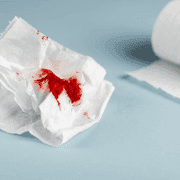Recovery After Piles Surgery
In This Article
Recovery After Piles Surgery
Parvathy
Updated on February 04, 2025
Medically verified by Dr. Arya
Fact checked by Dr. Fazeela

Proctology
5 min read
Are you planning to undergo surgery for piles? Or are you currently in a recovery period after surgery ?
Well, then this blog is apt one for you. While surgery can provide long-term relief, recovery is a crucial phase that requires understanding, patience, and care to ensure the healing process is smooth and swift.
This blog by Mykare Health deals with what to expect during recovery after piles surgery, how to manage discomfort, and practical tips to help you heal faster.
Whether you're about to undergo surgery or are currently in recovery, this blog aims to give you a clear picture of the road ahead so you can confidently manage your healing journey.
What to Expect After Piles Surgery
Immediately after piles surgery, it’s common to experience discomfort, swelling, and mild bleeding. Your body has just gone through a significant procedure, and knowing what lies ahead helps manage expectations and minimise anxiety.
Here’s a breakdown of the general recovery timeline
1. Post-surgery pain: Pain or discomfort is typically the most significant symptom after piles surgery. Surgeons often prescribe painkillers to help manage this. It's essential to take medications as directed to stay ahead of the pain curve.
2. Bleeding: Mild bleeding, especially during bowel movements, is expected in the first few days. This should gradually subside as the surgical wounds begin to heal.
3. Swelling: The affected area may be swollen for the first few days, with the swelling decreasing over time as the body heals. Keeping the area clean and dry is crucial to avoid infections.
4. Bowel movements: Passing stools may be painful initially, but avoiding constipation is essential. Eating a high-fiber diet, staying hydrated, and using stool softeners can help prevent strain during bowel movements.
5. Limited mobility: You may find it difficult to sit or move around comfortably for the first few days. Many pa ients are advised to rest, avoid strenuous activities, and use special cushions to ease pressure on the affected area.
6. Time off from work: Recovery time varies depending on the type of surgery, but most people are advised to take at least a week off work. Some may need longer, depending on the severity of their condition and the nature of their job.
 5 min read
5 min readDon't Ignore Bummy Pain: Could It Be Piles?
 7 min read
7 min readBlood In The Stool: A Sign You Shouldn’t Ignore
 6 min read
6 min readSitting All Day Wreaking Havoc? It Might Be Piles!
Get a Callback Now
How to Heal Faster After Piles Surgery
Recovering from piles surgery takes time, but there are proactive steps you can take to ensure a smooth and faster healing process. Here are some key strategies to aid your recovery
1. Follow Post-Operative Care Instructions Closely
Your surgeon will provide you with detailed aftercare instructions, which are crucial to follow to avoid complications and speed up recovery. These may include
-
Keeping the surgical site clean: Proper hygiene helps prevent infection. Using warm water to gently clean the area after bowel movements and patting dry can reduce the risk of irritation.
-
Applying prescribed ointments or creams: Anti-inflammatory or numbing creams can reduce discomfort and swelling.
-
Wearing loose, comfortable clothing: Tight garments can irritate the surgical site, so opt for loose-fitting clothes that allow air circulation.
2. Maintain a Fiber-Rich Diet A high-fibre diet is essential for preventing constipation, which can worsen post-surgical pain. Aim to consume plenty of
-
Fruits (apples, pears, berries)
-
Vegetables (broccoli, carrots, spinach)
-
Whole grains (brown rice, oats)
-
Legumes (beans, lentils)
Fibre softens stools, making them easier to pass, which can minimize strain and pain during bowel movements.
Staying well-hydrated by drinking at least 8-10 glasses of water daily is equally important in promoting a healthy digestive system.
3. Stay Hydrated Water plays a vital role in your recovery. Adequate hydration ensures that your body’s tissues stay moisturised and soft, which helps reduce constipation and ease bowel movements. Aim for at least 8 glasses of water daily. You can also add clear soups, herbal teas, or fruit-infused water to your routine for variety.
4. Use Sitz Baths
A sitz bath involves soaking your rectal area in warm water, which can soothe pain, reduce swelling, and promote healing. You can take a sitz bath several times a day, especially after bowel movements. The warmth of the water relaxes the muscles and tissues in the affected area, improving blood flow and helping the wounds heal faster.
5. Gradually Reintroduce Physical Activity
While rest is critical in the first few days, gentle movement can help reduce stiffness and improve circulation. Start with light activities like walking short distances, but avoid heavy lifting or strenuous exercises that can put pressure on the surgical area. As you feel better, gradually reintroduce more physical activity to your routine, but always listen to your body.
6. Monitor for Signs of Infection
While complications after piles surgery are rare, it’s essential to monitor your recovery for any signs of infection. Symptoms like increasing pain, excessive bleeding, foul-smelling discharge, or fever should be reported to your doctor immediately. Timely intervention can prevent complications from worsening and ensure a smooth recovery.
Lifestyle Adjustments for Long-Term Healing
Once the initial recovery phase is over, maintaining a healthy lifestyle can prevent future piles from forming and help you stay comfortable long-term.
1. Maintain a High-Fiber Diet Long-Term
Continuing to eat fibre-rich foods post-recovery will help keep your digestive system functioning smoothly. You’ll reduce your risk of future piles, as a high-fibre diet can prevent constipation and minimise strain during bowel movements.
2. Stay Physically Active
Light exercise such as walking or yoga can improve blood circulation, aiding healing and promoting overall health. Avoid activities that strain the rectal area, but gentle exercise can keep your body healthy and prevent future issues with piles.
3. Practice Good Bathroom Habits
Avoid sitting on the toilet for extended periods, as this can put pressure on the anal area. Go when you feel the urge and don’t delay bowel movements, as holding them in can lead to harder stools and increased strain.
Recovering from piles surgery is a process that takes time, care, and patience.
By understanding what to expect and adopting proactive healing strategies, you can significantly reduce discomfort and promote faster recovery.
With the right approach, you'll not only recover successfully but also make the necessary lifestyle changes to prevent future complications.
Following post-operative instructions and managing your pain are crucial steps to a smoother recovery.
A fiber-rich diet and proper hydration are essential for preventing constipation and ensuring smooth bowel movements post-surgery.
Be vigilant for signs of infection such as increased pain, excessive bleeding, or fever.
Maintaining a high-fiber diet, staying active, and practicing healthy bathroom habits can prevent future occurrences of piles.
Source Links
Laser Gastroenetrology Clinic



